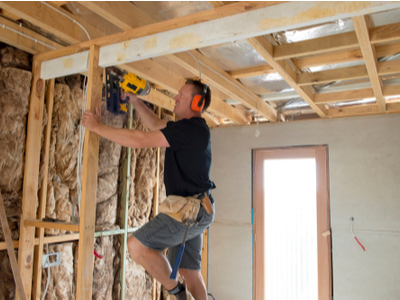
5 Hidden Costs to Builders When “Clients Supply” Fixtures
It can feel awkward turning down the client’s request to supply fixtures – especially if you haven’t yet won the job. What to do…
This article looks at the different ways clients ask this question and how ‘client supplied’ impacts you and your business.
Importantly, it shows you how to professionally and effectively respond so that you, and the client, get a great outcome.
At ProCalc we’re not big fans of ‘client supplied’.
Interviews with hundreds of builders revealed several issues that can trap builders in an unprofitable job spiral.
While the client might feel like they’re saving a few dollars, here are some issues we’ve seen with “client supplied”:
Hidden Cost 1 – Who has Warranty Responsibility?
Most clients don’t have the experience to understand that a builder wont warranty a faulty fitting or appliance they haven’t supplied.
They’ll also struggle with the idea they need to pay for trades’ services to replace or repair the item should something go wrong.
Most clients just don’t think that far ahead.
However, if you explain these issues to clients, they begin to understand the benefit of the builder supplying all materials and providing the warranty.
Hidden Cost 2 – Defective Goods – Who’s Responsible?
If something’s wrong with materials or an appliance that’s delivered to site, who’s responsible?
Do you need to return the item to the supplier, or will the client do the legwork?
If an appliance arrives on site damaged, who pays for it if there’s a dispute about who damaged the product?
If the builder is supplying everything, these questions never trouble the client.
Hidden Cost 3 – Client Preferred Trades
Occasionally, the client will have a friend or relative who they want you to engage for their job.
The problem is, unlike your own trades, the client’s guy hasn’t been vetted, doesn’t have the prospect of future work from you, doesn’t understand how you work and probably won’t deliver on time.
Explain to the client that your trades have proven themselves and you have greater confidence in project quality and delivery with your own guys.
That is, you’re protecting the client’s interests.
“Builder’s Testimonial: Procalc is our favourite way to start our feasibility with the new leads. It gives a quick overview and gets rid of the flakery tire kickers quick.”Jake Anderson, Snakes & Ladders Projects
Hidden Cost 4 – Product Quality/Suitability
Almost without exception, when a client supplies products, something will be unsuitable due to specifications or quality.
So, if you need to swap the product, the client will need to cover your time returning it or making it work for their project.
Explain to the client this will just create unanticipated costs (variations) for them.
Hidden Cost 5 – Charge Margins on Client Supplied
If, after all these points, you still can’t convince the client that you should supply everything, protect yourself as you would on any job – charge the correct margins.
Your margins (1) cover risk and reward and (2) enable the builder to earn a healthy income. (Remember: smaller projects attract larger margins)
You need to do this because you know issues always arise. Not charging a margin on supplied items is akin to doing that part of the job for free.
Who does that?
Experienced builders never eliminate their margin because that’s how a builder earns their living.
Best Practice Pricing
ProCalc’s algorithm allows for the builder supplying all materials and products – which is best practice.
Clients who insist on supplying gear will increase risk and erode margins for builders.
To see the difference, book a free ProCalc trial here.
- Builders, Get Your Pricing Right Every-time – No More Under-Quoting
- Transform Your Building Business in 43 Mins (webinar)
- How (& Why) to Charge for First Client Meetings
- Take a Free Trial of ProCalc
- Stop All Free Client Meetings – Charge Upfront
- Want more tips like these? Checkout the Webinar: Work Smarter, Not Harder

Richard Armstrong is a former registered builder who recently interviewed hundreds of experienced Australian builders to identify how they best manage clients, budgets and profitability.










